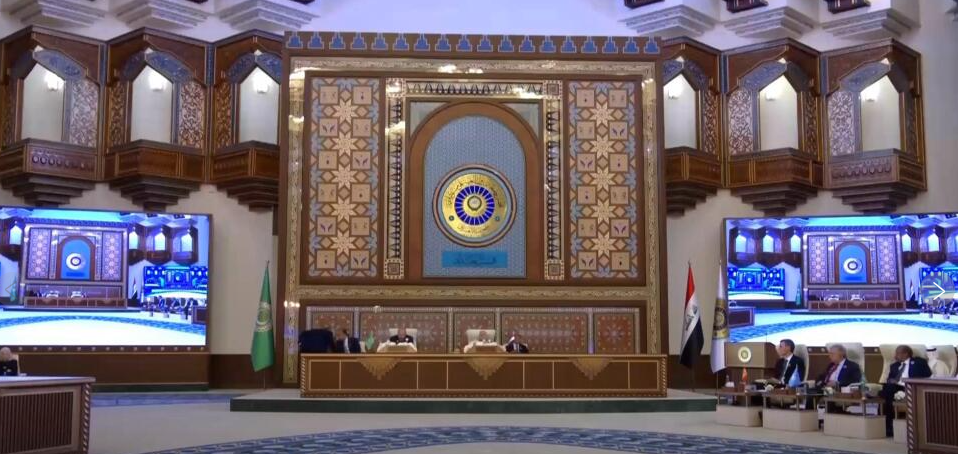“This genocide has reached levels of ugliness not seen in all conflicts throughout history,” Iraq’s Prime Minister Mohammed Shia al-Sudani said in a speech that called for allowing aid to flow into Gaza. Al-Sudani added that Iraq will work on setting up an Arab fund for the reconstruction of the region in which Baghdad will pay $20 million for Gaza and a similar amount for Lebanon.
Final statement calls for end to Israeli attacks in Gaza
“We demand an immediate end to the Israeli aggression on Gaza and an end to hostilities that are increasing the suffering of innocent civilians,” said the final statement issued after the summit that was read by Iraqi Foreign Minister Fouad Hussein. “Humanitarian aid should be allowed into all areas in Palestine without conditions.”
The leaders said they reject any attempt to displace Palestinians in Gaza saying that any such move would be “a crime against humanity and (an act of) ethnic cleansing.” The statement said Arab leaders support Palestinian President Mahmoud Abbas’ call for the holding of an international peace conference that leads to a two-state solution.
El-Sissi said that Egypt, in coordination with Qatar and the U.S., is “exerting intense efforts to reach a ceasefire” in Gaza, adding that the efforts led to the release of Israel-American hostage Eden Alexander. He said that Egypt plans to hold an international conference for the reconstruction of Gaza “once the aggression stops.”
Abbas calls for Hamas to give up power in Gaza
Abbas, the Palestinian president, called on Hamas to abandon power in Gaza and along with other militant groups to hand over weapons to the Palestinian Authority. Hamas seized control of Gaza from Abbas’ Western-backed Palestinian Authority in 2007, and reconciliation attempts between the rivals have repeatedly failed.
The Baghdad meeting was upstaged by U.S. President Donald Trump’s tour in the region earlier in the week. Trump’s visit did not usher in a deal for a new ceasefire in Gaza as many had hoped, but he grabbed headlines by meeting with new Syrian President Ahmad al-Sharaa — who had once fought against U.S. forces in Iraq — and promising to remove U.S. sanctions imposed on Syria.
Al-Sharaa did not attend the summit in Baghdad, where Syria’s delegation was headed by Foreign Minister Asaad al-Shibani. Iraqi Shiite militias and political factions are wary of al-Sharaa’s past as a Sunni militant and had pushed back against his invitation to the summit.
During Syria’s conflict that began in March 2011, several Iraqi Shiite militias fought alongside the forces of former Syrian President Bashar Assad, making al-Sharaa today a particularly sensitive figure for them.
Arab leaders back Syrian unity
The statement issued after the summit said Arab leaders back Syria’s unity and reject foreign intervention in the country. They condemned Israel’s airstrikes and land incursions into Syria over the past months.
They praised Trump’s plans to lift the sanctions imposed on Syria and the easing of European sanctions recently saying that would “speed up recovery and the reconstruction process” in the war-torn country.
An Iraqi official, speaking on condition of anonymity because he was not authorized to speak to media, said that Iran’s Quds Force commander Esmail Ghaani paid a visit to Baghdad prior to the summit and “conveyed messages of support for the Iranian-American negotiation’s” to reach a nuclear deal and lifting of crippling sanctions on Iran.


